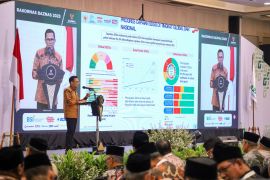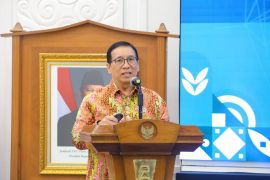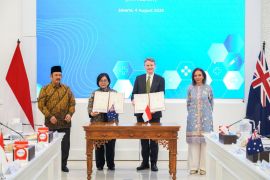"It is a big task to create public awareness in Indonesia, in order to reduce (cigarette) consumption, which is not only unproductive but also unhealthy," Brodjonegoro, who is also the head of the National Development Planning Agency (Bappenas), said here on Thursday.
He elaborated that if smokers would spend money to buy cigarettes, they would have to spend more money for tobacco-related health problems in the longer term.
"The national health insurance (the healthcare BPJS) would also become another victim. The more the money people spend on cigarettes, the more funds BPJS would have to spend for their healthcare costs," the minister explained.
According to Brodjonegoro, one concrete move to reduce cigarette consumption is to increase its price.
"The concrete move is to increase the excise tax annually. I think it should be higher than 57 percent. The price should be made more expensive, so that not everyone can afford it," he noted.
A data of the Central Bureau of Statistic (BPS) showed that cigarette contributes 11.7 percent to the poverty line in urban areas and 10.21 percent in rural areas.
Poverty line is used as a basis to classify a person as poor, according to the government`s standard. Poor people are those who have average expenditure per capita per month below the poverty line.
The poverty line in March has been recorded at Rp401.220 per capita per month, or up 7.14 percent compared to the same period in 2017, which was at Rp374.478 per capita per month.
Cigarette has been ranked second in the contribution to the poverty line after rice, which was recorded at 20.95 percent in urban areas and 26.79 percent in rural areas.
"If 10 percent of the expenditure was used for cigarettes, it would cut 10 percent of their potential to afford basic necessities," the minister remarked.
Reporter: Calvin Basuki
Editor: Yosep Hariyadi
Copyright © ANTARA 2018











